Student Internships
Internship Objective – Harnessing the power of data and analytics to drive decision-making
The role of The Institute is to provide students from our Academic Partner institutions with opportunities to work on real community projects that allow them to conduct applied research utilizing various methods. Students are exposed to community and business leaders and pressing issues impacting our region. For their work here, they receive academic credit from their institution as well as a stipend from The Institute and may receive publication credit. The Institute offers internships for any academic major. An internship will allow a student to participate in essential research, analysis, and dissemination of the research. Student internships at The Institute will involve the student in a professional learning experience through active participation in the work world. By learning directly in a professional environment the student will be able to apply their classroom theoretical learning to everyday situations in the workplace. This applied learning will help to connect the student to real life opportunities, activities, and challenges in the working world.
Students must be computer literate; have excellent research, written and verbal communication skills. Students must possess a GPA of 3.2 or higher and be entering or in their senior year of an undergraduate program or be a graduate student. Acceptance is based on a competitive process which includes an interview, reference, and writing sample. Students will be eligible for a stipend (amounts vary based upon academic credits earned) upon successful completion of their project scope of work and after all requirements are met from their sponsoring institution. Internship hours are based on their respective academic institution’s credit requirements. Students not attending an Institute partnering institution may apply for summer programs providing they are from northeastern Pennsylvania.
Videos
Internship coordinator Jill Avery-Stoss on internships
Interns’ Perspectives
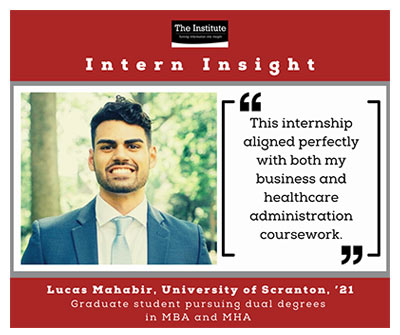
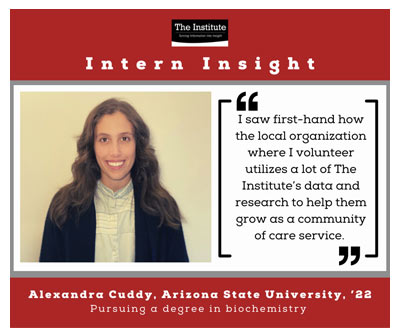
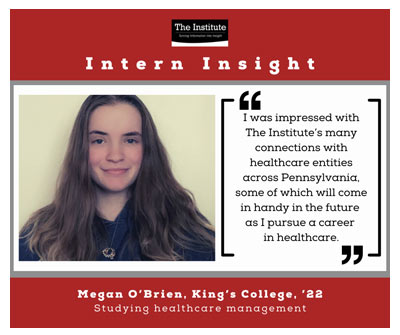
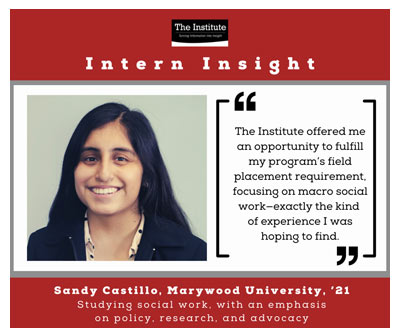
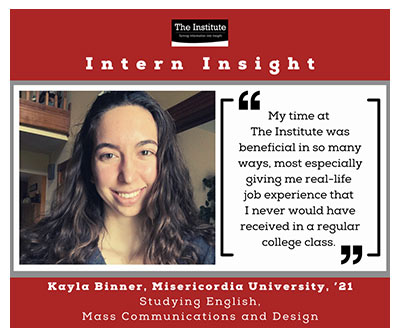
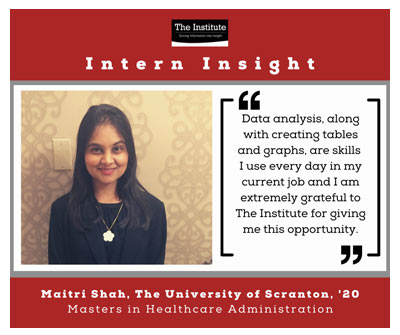
Insight into The Institute’s Internship Program
The Institute for Public Policy & Economic Development is a trusted research organization serving Northeastern Pennsylvania’s public, private, and non-profit entities. Through a multi-disciplinary approach, The Institute provides high-quality, comprehensive research to identify solutions and strategies for businesses and organizations.
The Institute is known for its top-notch internship program, open to students with any major – whether they attend any of the organization’s 13 member institutions or whether they are regional residents. The program allows students to participate in essential research, analysis, and dissemination, and includes both proprietary client work and community-based study.
According to Jill Avery-Stoss, The Institute’s internship coordinator, “What makes our internship program unique is that in addition to the practical learning, we’re careful to focus on the soft skills like time management and interpersonal communications, as our research shows those are often overlooked. Many of the skills we hone are transferable. So, even when students are not specifically aiming for research careers, the ability to engage in analysis, critical thinking, and extensive writing can be used in just about any field.”
Another key goal of The Institute’s internship program is making an investment in local talent. Avery-Stoss adds, “Our research has shown that people who complete internships in Northeastern Pennsylvania are likelier than others to remain in Northeastern Pennsylvania, and become part of the workforce here long-term.”
Here’s what some of our interns had to say about their experiences at The Institute of Public Policy and Economic Development:
Q & A
What advice would you offer to students either applying for an internship with The Institute or students who are already participating?
Megan O’Brien: It’s really helpful to plan ahead for when you want to complete your hours, especially if you’re going to school and working another job like I did. I actually scheduled a certain number of hours each week, on specific days and times, so that the commitment wouldn’t be so daunting.
Alexandra Cuddy: I would say don’t be afraid to ask for help if you’re stuck on a research assignment or a writing prompt. You don’t have to work through things all by yourself. Everybody was really kind to me, and readily available through email or over Zoom.
Can you give some examples of actual work you did?
Alexandra Cuddy: I got to do a variety of things throughout the internship. I started out with a telehealth brief, which was interesting considering how telehealth grew so exponentially during the pandemic. I also worked a lot with spreadsheets, which if you’re going into research, you’re going to be spending a lot of time looking at spreadsheets. I ended my internship doing some miscellaneous things for Policy Tracker like researching news articles and current events.
Lucas Mahabir: I started with 24 hours of community service, which gave me some insight into the needs of the Scranton community. Once the pandemic hit, I worked on some COVID-19 research, which was enlightening in just learning about it and then seeing how the community responded. I also worked with Quarterly Economic Tracker, which involved research about health disparities within our community and opportunities for improvement. Everything I was exposed to will be instrumental in the work that I do in the future.
What was the most valuable part of the internship, or something you were most proud of?
Lucas Mahabir: What was most valuable to me was The Institute’s flexibility and willingness to let us pursue our own interests. I enjoyed learning about the community and what steps we could take to make improvements. Not only was I proud of that particular project, but I was just proud of the organization in general for allowing me to do that work.
Sandy Castillo: I was really proud of the short policy brief I wrote. It was about tenants’ rights and mediation, something I’m really passionate about. My research in the area of housing has helped me in talking about some of the issues I care about during job interviews and in other professional circumstances.
Is there anything specific that you learned during your internship that you would like to share?
Lucas Mahabir: I learned how to go about looking for information more effectively and efficiently. I got a lot of great ideas and tips about how to find the best information to support a particular topic, from researching the right databases, asking the right questions, and connecting with people who have relevant experience within a certain industry. I think that’s something unique about this internship. There was no cap or limitation on the type of information we could use, and I became a better researcher and a stronger graduate student because of it.
Alexandra Cuddy: I learned how to utilize different software programs for research and a lot of functions in Excel. That might seem kind of minor, but during my first assignment, I was actually going through and counting each Excel cell. By my last assignment, I had discovered all these different functions I could use, which has been so helpful to my research.
Any surprises you'd like to share?
Lucas Mahabir: I was surprised at how well we were all able to adapt to the changes brought on by COVID-19. I started on-site at the University of Scranton, and we didn’t skip a beat when we started working remotely. We were able to jump right in and continue doing work throughout the pandemic. I knew a lot of people who had to stop working when they couldn’t go to their on-site internships. So, the flexibility of our online ability was delightfully surprising. I was really happy to be able to work remotely, even though we were going through tough times.
Contact information
For more information on our internship program or to apply, please contact:
Jill Avery-Stoss, Internship Coordinator
averystoss@institutepa.org
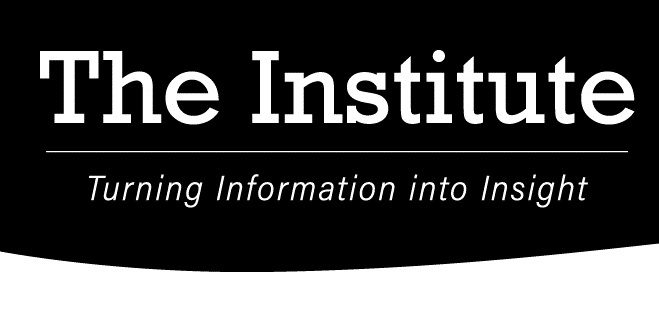

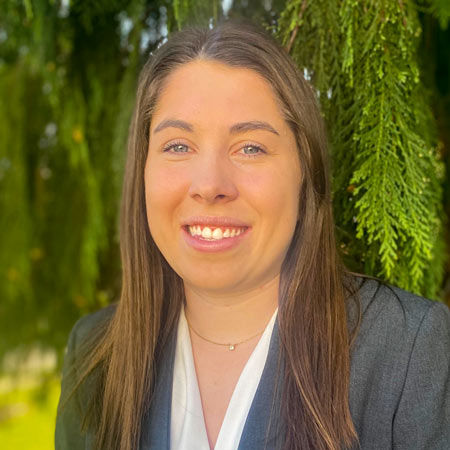 Sarah, a former Institute intern, joined The Institute in April 2021 as a Research Assistant. She started her new role as a Research Analyst in January 2024.
Sarah, a former Institute intern, joined The Institute in April 2021 as a Research Assistant. She started her new role as a Research Analyst in January 2024. 

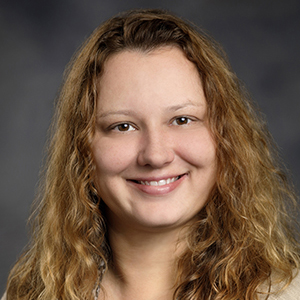 Jill Avery-Stoss joined The Institute in June 2018 to fill the newly-created role of Research, Data, Intern & Administrative Coordinator. She assists with the collection and management of data for purposes of ethical and efficient analysis. She visits partner campuses to market The Institute’s internship opportunities, and participates in event-planning logistical activities as well. In 2021, Jill was promoted to Director of Operations to reflect the diversity in her job description and the additional marketing and communication functions she successfully mastered in 2020. In 2022, Jill was named Chief Operating Officer after expanding into both research and administrative management functions. Jill is taking on project management, fundraising, and other executive leadership functions of the organization.
Jill Avery-Stoss joined The Institute in June 2018 to fill the newly-created role of Research, Data, Intern & Administrative Coordinator. She assists with the collection and management of data for purposes of ethical and efficient analysis. She visits partner campuses to market The Institute’s internship opportunities, and participates in event-planning logistical activities as well. In 2021, Jill was promoted to Director of Operations to reflect the diversity in her job description and the additional marketing and communication functions she successfully mastered in 2020. In 2022, Jill was named Chief Operating Officer after expanding into both research and administrative management functions. Jill is taking on project management, fundraising, and other executive leadership functions of the organization.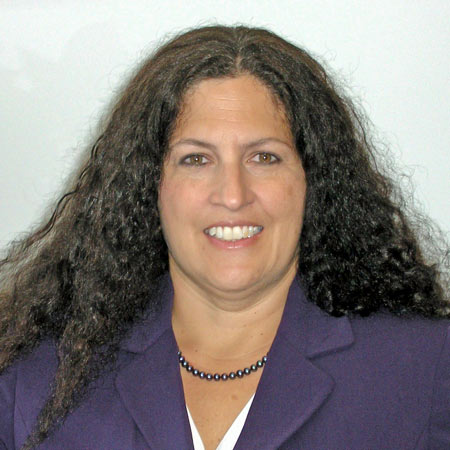 Ooms is responsible for all facets of research, organizational strategy, and management. Ooms is an active principal investigator in all Institute research. Ooms has been nationally recognized as a leader in regional economic development. She turned that skill into a research institute to help other regions develop and prosper. Her strategic skills have allowed The Institute to expand its services to the private and non-profit sectors for research and analysis in community health needs assessments, strategic planning, market and feasibility studies, and economic impact analysis.
Ooms is responsible for all facets of research, organizational strategy, and management. Ooms is an active principal investigator in all Institute research. Ooms has been nationally recognized as a leader in regional economic development. She turned that skill into a research institute to help other regions develop and prosper. Her strategic skills have allowed The Institute to expand its services to the private and non-profit sectors for research and analysis in community health needs assessments, strategic planning, market and feasibility studies, and economic impact analysis.